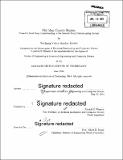| dc.contributor.advisor | Patrick H. Winston. | en_US |
| dc.contributor.author | Yarlott, Wolfgang Victor Hayden | en_US |
| dc.contributor.other | Massachusetts Institute of Technology. Department of Electrical Engineering and Computer Science. | en_US |
| dc.date.accessioned | 2014-11-24T18:42:11Z | |
| dc.date.available | 2014-11-24T18:42:11Z | |
| dc.date.copyright | 2014 | en_US |
| dc.date.issued | 2014 | en_US |
| dc.identifier.uri | http://hdl.handle.net/1721.1/91880 | |
| dc.description | Thesis: M. Eng., Massachusetts Institute of Technology, Department of Electrical Engineering and Computer Science, 2014. | en_US |
| dc.description | Cataloged from PDF version of thesis. | en_US |
| dc.description | Includes bibliographical references (page 108). | en_US |
| dc.description.abstract | The original question was: "Can machines think?" Alan Turing asked: "Does there exist a digital computer that can do sufficiently well at the imitation game?" Patrick Winston asked: "What makes human intelligence different from that of other primates?" Winston's answer came in the form of four hypotheses that are the core behind the vision of the Genesis group at MIT's Computer Science and Artificial Intelligence Laboratory, which has developed the Genesis story understanding system. The key focus behind this system is: stories are an essential component of what makes human intelligence so remarkably different from that of other animals. I believe that if Winston and the Genesis group are correct and stories are a key part of human intelligence, then it is necessary that Genesis, the system that serves to demonstrate this point, be capable of handling stories from all cultures, including less well-known cultures such as that of the Crow indians, a tribe from the northern plains of the United States. Over the course of my work, I analyzed three collections of Crow literature, created a list of cultural features present in the stories, identified four as particularly important (unknowable events, medicine, differences as strengths, and uniform treatment of entities), and developed a set of five Genesis-readable stories in which those four features were prominent. This led to several new elements in the story understanding model; with these new elements, Genesis is capable of understanding stories from the Crow culture, bringing it one step closer to being a universal story understanding system. | en_US |
| dc.description.statementofresponsibility | by Wolfgang Victor Hayden Yarlott. | en_US |
| dc.format.extent | 108 pages | en_US |
| dc.language.iso | eng | en_US |
| dc.publisher | Massachusetts Institute of Technology | en_US |
| dc.rights | M.I.T. theses are protected by copyright. They may be viewed from this source for any purpose, but reproduction or distribution in any format is prohibited without written permission. See provided URL for inquiries about permission. | en_US |
| dc.rights.uri | http://dspace.mit.edu/handle/1721.1/7582 | en_US |
| dc.subject | Electrical Engineering and Computer Science. | en_US |
| dc.title | Old man coyote stories : cross-cultural story understanding in the Genesis story understanding system | en_US |
| dc.type | Thesis | en_US |
| dc.description.degree | M. Eng. | en_US |
| dc.contributor.department | Massachusetts Institute of Technology. Department of Electrical Engineering and Computer Science | |
| dc.identifier.oclc | 894492789 | en_US |
